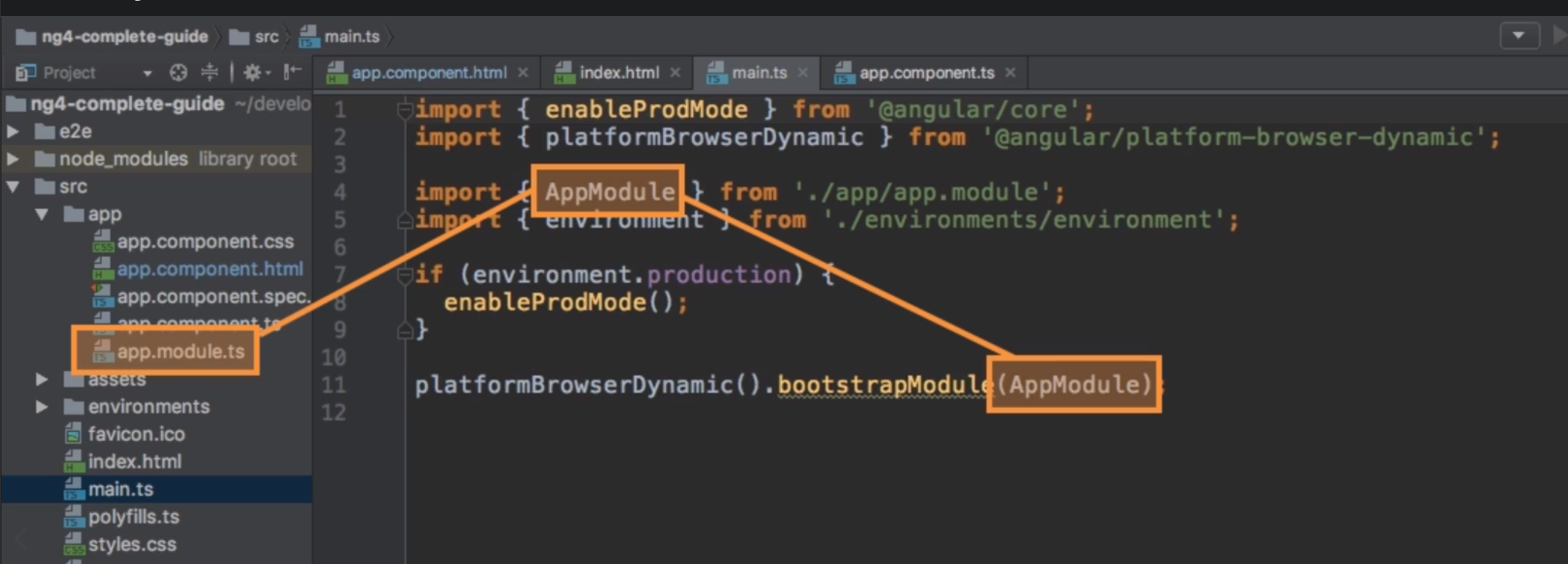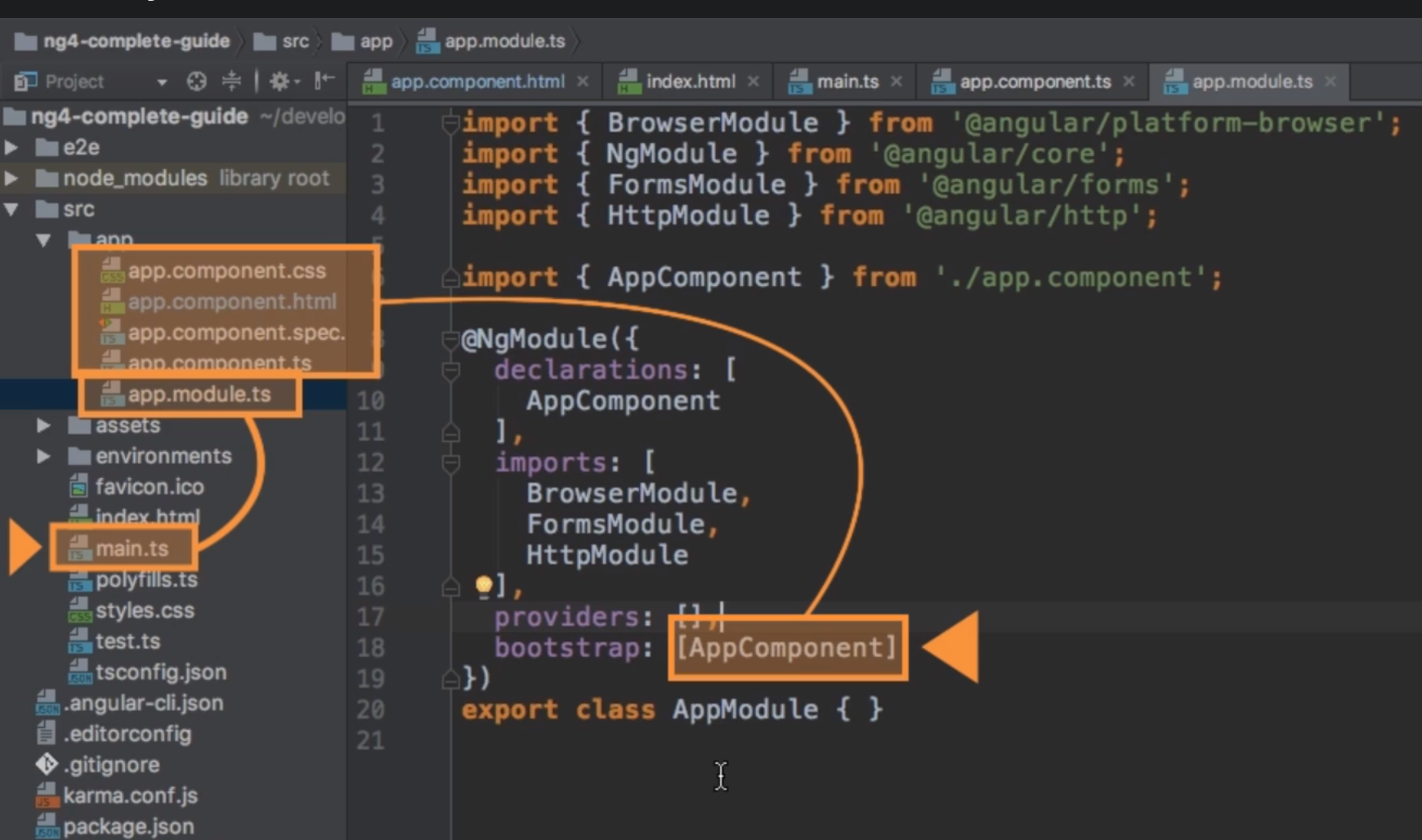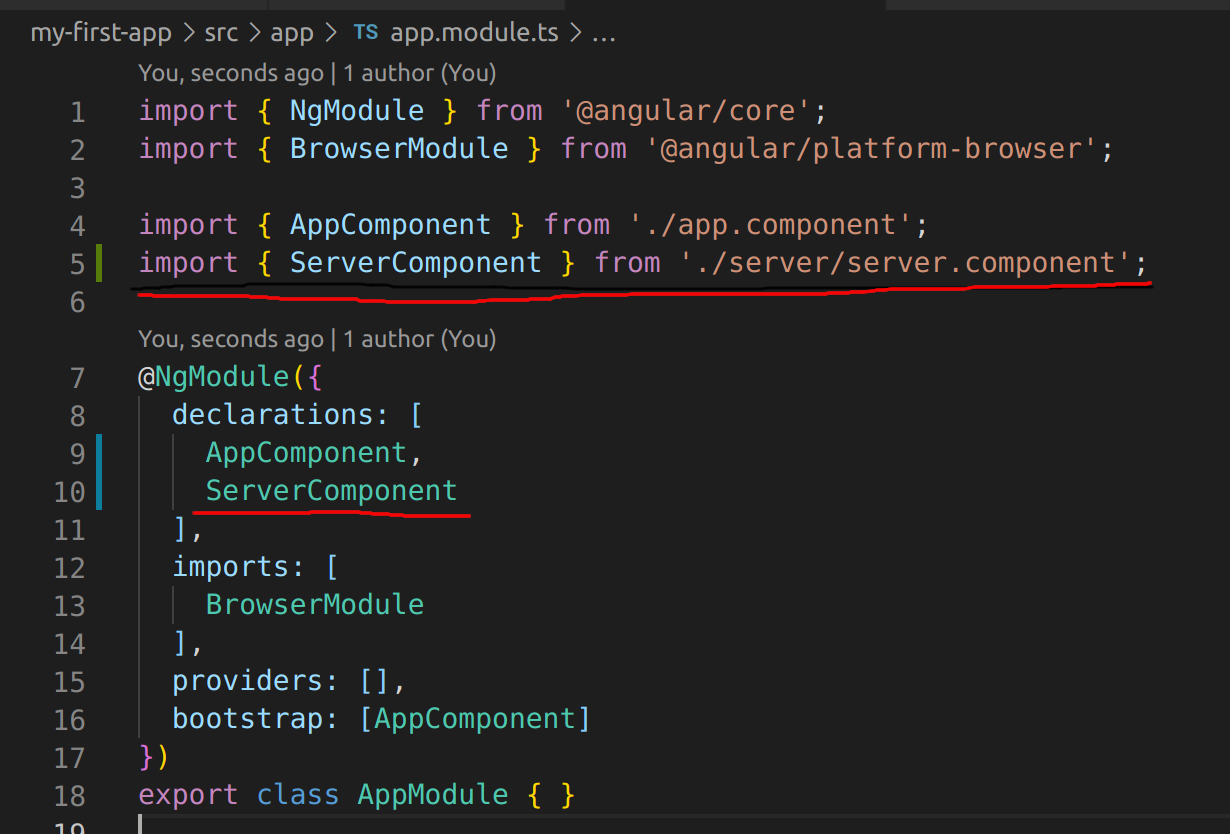2.2 KiB
The Basic
Angular serves the index.html in the src directory and loads the components from the src/app directory.
The scafolding creates a root-component which is loaded into the index.html on the <app-root></app-root>-Tag.
In the @Component we find a selector with the value of <app-root></app-root>. With this selector, Angular is able to replace in the index.thml on the <app-root></app-root>-Tag with the content in the app.component.html.
When the app is builded, the angular cli will inject at the bottom a bundle of *.js files which is needet to run the app.
main.ts is the file which will be executet at the beginning.
Angular's main ideas is to build components to build an app. Each Component has it's own template (html), maybe it's own style (CSS) and more important it's own business logic. Components can be reused in multiple parts or the application.
Component
The app.component is a special component. It serves to bootstrap all the application and is the root of the application. All the selectors for the other components are located now in the app.component.html.
Good practice to create a new component, you should create a directory in the app folder and name it the same as the componentname. The convention of naming the component is like this name.component.ts.
A component is a class which angular is able to instanciate.
Required files for a component are a server.component.ts and a server.component.html.
In the *.ts file goes the logic and in the *.html file is the template of the component.
import { Component } from '@angular/core'; // Import for the Component-Decorator
@Component({ // Decorator
selector: 'app-server', // Unique selector
templateUrl: './server.component.html' // template file
})
export class ServerComponent { // Component-Class
}
This register the component and let angular know that a new component was created, it needs to be declared in the root app module (app.module.ts). Add it in the declarations-array and for TS to find the file, it needs also an import.


